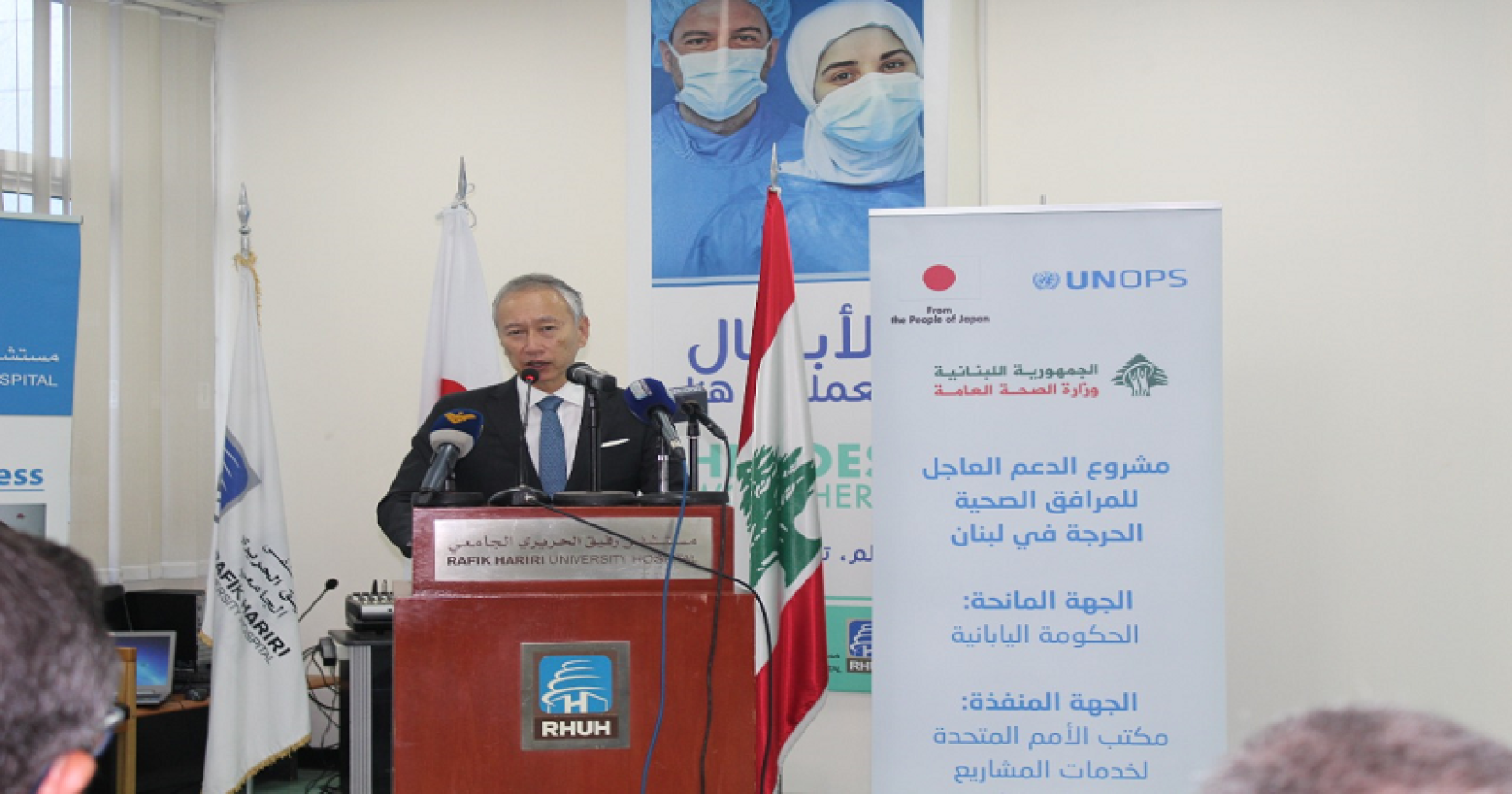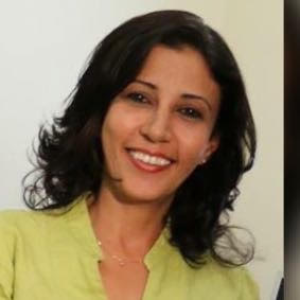UNOPS completes the installation of solar energy systems donated by Japan at Rafik Hariri Hospital in Beirut
13 October 2022
- Beirut, 12 October 2022 -- The Ministry of Public Health, the Embassy of Japan in Lebanon, and the United Nations Office for Project Services (UNOPS), marked the completion of the solar photovoltaic (PV) hybrid systems installed at the Rafic Hariri University Hospital in Beirut.

Funded by the Government of Japan, the project aimed at strengthening the operational capacity of the health sector in Lebanon. Under the project, UNOPS installed solar PV systems to the critical health facilities amid the serious shortage of electricity in the country. In addition, the initiative provided 116 pieces of critical equipment to a total of 16 governmental hospitals across Lebanon for medical treatment and sterilization, furniture and more than 33,000 COVID-19 medical supplies.
At Rafic Hariri University Hospital, the newly installed renewable energy solution added a capacity of 384 KWp that will generate annual savings over USD 160,000, amid the drastic hike in fuel prices. Furthermore, the newly equipped central sterilization facilities will help provide improved healthcare for vulnerable populations in need of essential health care.
Following the presentation by Mr. Hicham Fawaz, Head of the Hospitals and Dispensaries Department at the Ministry of Public Health highlighting the health projects funded by the Government of Japan, representative of the Minister of Public Health, Mr. Fadi Sinan, Director General of the Ministry of Public Health, said: “The cooperation between the Ministry, the Government of Japan and UNOPS is not new. Their long-standing and generous support has contributed to sustaining public healthcare services. Durable projects such as solar energy projects, provide regular and clean energy sources to government hospitals ensuring lower operational cost and sustainable solutions to the ongoing energy crisis.”
Japan Ambassador to Lebanon, H.E. Mr. Takeshi Okubo, said: “Through this assistance, Japan aims to respond to the emerging threats, such as shortages of essential supplies, soaring prices and above all power outages, which are pushing hospitals across the country dangerously close to a breaking point. Japan believes that renewable energy could enhance the hospitals’ capacity to deter the grave risks arising from electricity outages on the provision of health and medical services. The Japanese Government will remain a strong advocate for the adoption of renewable energy solutions across the country, and stands ready to support Lebanon for sustainable growth.”
From his side, the Head of Medical Department and Chief of Staff/ Representing the RHUH General Manager, Mr Jihad Saade, said: "The generous donations from the Government of Japan implemented by UNOPS strongly contributed to supporting public healthcare institutions, as medical services have become burdensome on citizens and hospitals alike. The provision of solar panels have reduced operational and diesel costs, whereas the rehabilitation and renovation of the central sterilization unit and equipping it with modern and advanced machines will enhance quality of care”.
“This initiative is a testimony to the strong partnership between the Government of Lebanon, the Government of Japan, and UNOPS in supporting Lebanon’s health sector by enhancing access to lifesaving healthcare services.” said Muhammad Usman Akram, Director of UNOPS Operational Hub in Amman.
Head of the Parliamentary Health Committee, Member of the Parliament Dr. Bilal Abdullah said: “All of us in Lebanon have learned the lessons from the economic crisis that the country is going through, foremost of which is the need to support government hospitals more than before." He also affirmed his full keenness to support all legislation that would improve the conditions of government hospital employees, including doctors, nurses and workers, praising the great sacrifices they made before, during and after the Corona pandemic.
This support will help targeted hospitals to provide the needed health services to more than 570,000 vulnerable women, girls, men and boys including Syrian refugees who will benefit from the project on an annual basis.
*******
About UNOPS:
UNOPS helps the UN and its partners provide peace and security, humanitarian, and development solutions. The organization’s mission is to help people build better lives and countries achieve peace and sustainable development. UNOPS services cover infrastructure, project management, procurement, financial management and human resources. Partners call on UNOPS to supplement their own capacities, improve speed, reduce risks, boost cost-effectiveness and increase quality.
UNOPS Operational Hub in Amman covers projects in Jordan, Iraq, Lebanon, Syria, and Yemen and implements work in partnership with bilateral donors, national governments, and other UN agencies.





